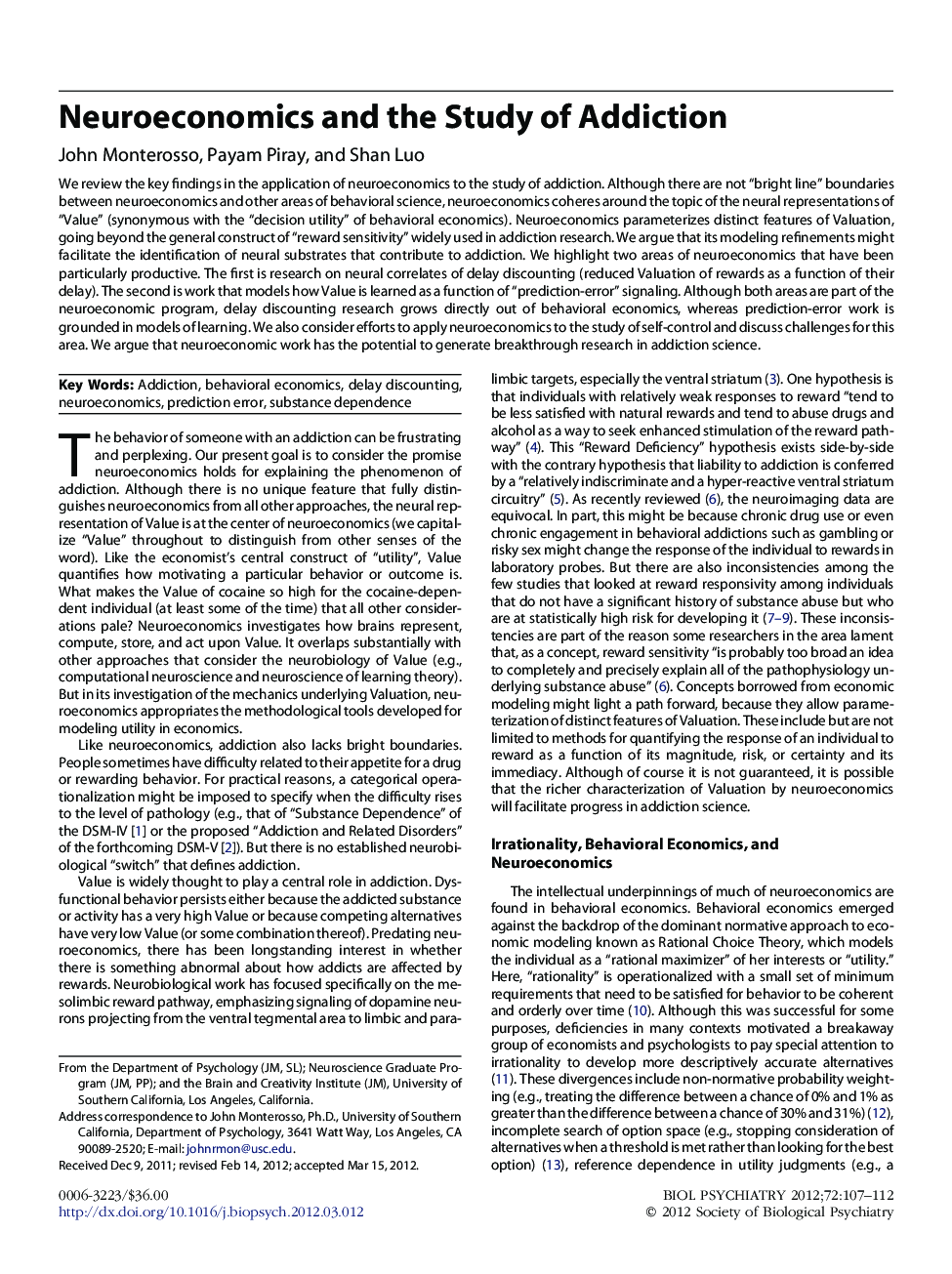| Article ID | Journal | Published Year | Pages | File Type |
|---|---|---|---|---|
| 4177944 | Biological Psychiatry | 2012 | 6 Pages |
We review the key findings in the application of neuroeconomics to the study of addiction. Although there are not “bright line” boundaries between neuroeconomics and other areas of behavioral science, neuroeconomics coheres around the topic of the neural representations of “Value” (synonymous with the “decision utility” of behavioral economics). Neuroeconomics parameterizes distinct features of Valuation, going beyond the general construct of “reward sensitivity” widely used in addiction research. We argue that its modeling refinements might facilitate the identification of neural substrates that contribute to addiction. We highlight two areas of neuroeconomics that have been particularly productive. The first is research on neural correlates of delay discounting (reduced Valuation of rewards as a function of their delay). The second is work that models how Value is learned as a function of “prediction-error” signaling. Although both areas are part of the neuroeconomic program, delay discounting research grows directly out of behavioral economics, whereas prediction-error work is grounded in models of learning. We also consider efforts to apply neuroeconomics to the study of self-control and discuss challenges for this area. We argue that neuroeconomic work has the potential to generate breakthrough research in addiction science.
